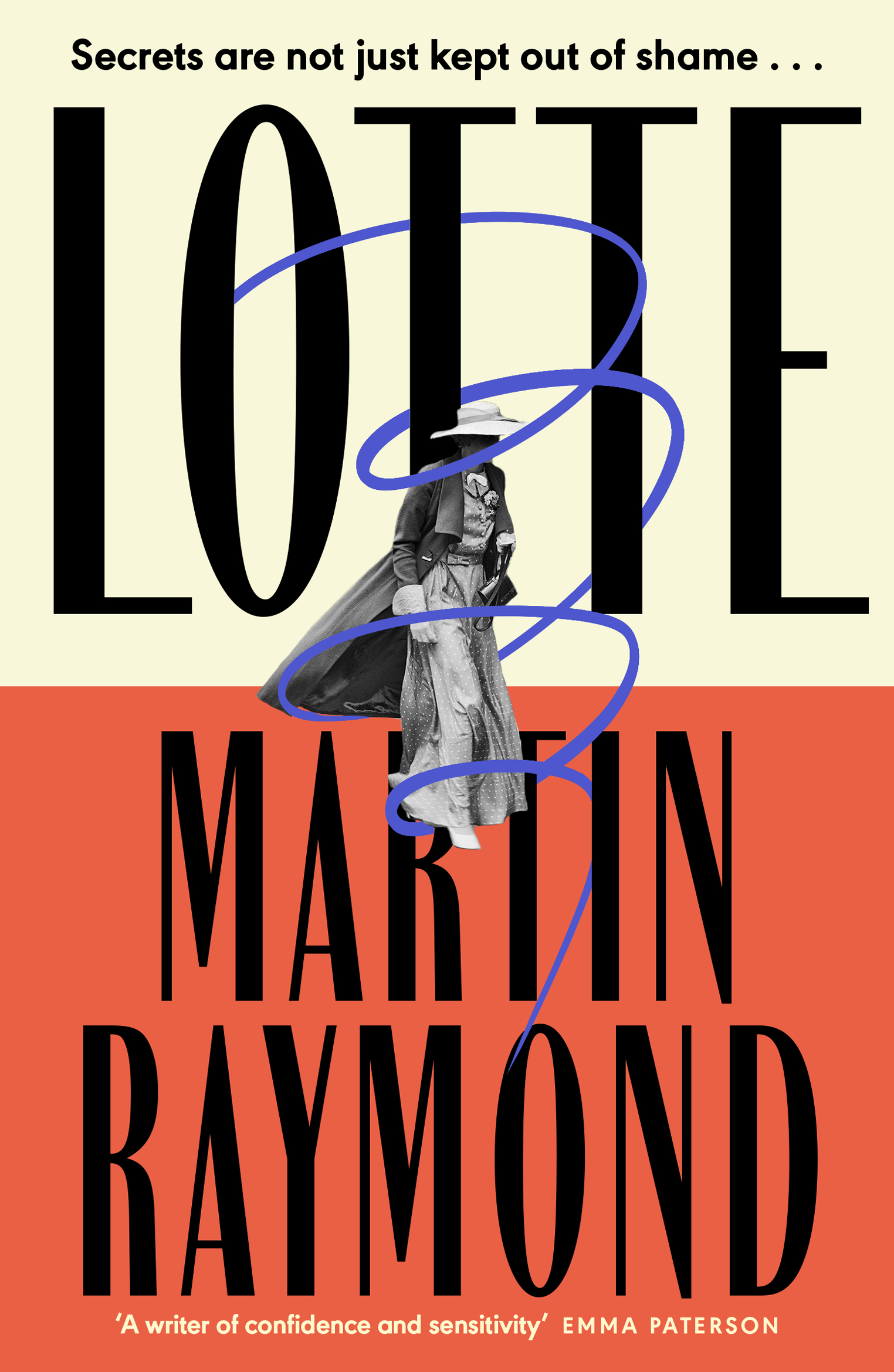Author Martin Raymond discusses the considerations he made when fictionalising his grandmother's life for his debut book, Lotte.

What’s the point of ancestors? Apart from their obvious existential value. What difference does it make where you come from? I was always quick to mock ancestry shows on TV, commenting freely on celebrities’ apparent incredulity that people were poor and times were hard in the olden days.
Mocked, that was, until a friend casually told me that my paternal grandmother had died in Stirling Asylum in 1933. I knew about her early death, leaving my father and his brother and sister to the mercies of housekeepers until my grandfather remarried. But I had no idea about the asylum – her forced admission and sudden death there ten days later. It was all there in the records, tiny copperplate in a huge book. A secret that my family had kept for nearly a hundred years.
There was so much drama here – family secrets, sudden reveals, a mysterious death, not to mention deep personal engagement – that it felt like a fully formed plot. But as I began my novel Lotte, I realised that writing about my fairly recent ancestors was a gift that came with extra dilemmas and contradictions.
I’m not sure there was a day when I didn’t question my rights to the story. No matter how respectful I felt I was being to my grandmother’s memory, what made me entitled to shape the facts of her life into a narrative that was entirely of my own making? As a male writing in the 2020s, what made me think I could enter the mind of a woman of the 1920s? These are fundamental questions in the imaginative business of creating any character. The experience of entering the consciousness of an asylum physician or housekeeper was fundamentally different. There was a freedom to craft them any way I liked. But, when it came to my grandmother there was an odd sense of having a special responsibility to recreate her in all her complexity.
The past isn’t just another country – it’s another world completely. We think we are so clever with all the research at our fingertips, but what do we really know of the interior lives of people in the past? Even if they are our own family. With this in mind, I worked very hard to try to avoid condescending to the past from my lofty 21st century progressivism. Who was I to judge my grandfather - what options were there to the asylum in 1933? Just like us, he trusted the professionals. From our long, enlightened perspective the asylums were awful places. But a few hours with the records shows that wasn’t how the professionals of the time saw it. They were genuine asylums – sheltering the vulnerable from a world that had very hard edges indeed.
I’d like to think these dilemmas improved the novel. Care for characters and some self-doubt adds a layer of sensitivity. Some humility in the way the past is rendered is not unwelcome and it’s always more interesting to understand than judge. An element of unease and ambiguity is what novels do best.
But a fundamental dilemma was the daily task of deciding which facts to use and which to make up. This was made easier by having very few facts to work with – and as my father and his siblings were no longer with us, I had no one to ask.
I kept to the basic dates – the ten days between her admission and death gave the narrative an urgency. I knew she was musical and that was enough to provide an ambition that could drive her story along. I read about the horrors of early experiments in psychiatry. Again, for the writer, there was a useful contradiction here – these explorations came from a belief that there must be a cure to mental illness - an alternative to a lifetime in the asylum. But that doesn’t forgive the abuses of patients with no rights. There is no record of Stirling Asylum being other than a caring, professional place. But that didn’t fit my narrative.
One dimension which remained true to the facts was location. Walking around the houses and streets where my grandparents lived their lives did help me see through their eyes. And where the buildings were gone – the Asylum estate is now covered in neat modern villas – there was a poignancy which coloured the tone of the novel.
The relationship between writers and their families is rarely ideal. My father would have hated to see his mother’s story becoming fiction – he wasn’t one to share. But imagining her struggles and my father’s early life, brought me closer to him and an understanding of where he had come from. We’d have had much to talk about. Too late, of course - the final contradiction.
Martin Raymond’s first novel, Lotte, was published by Indie Novella in 2024. His short stories have appeared in New Writing Scotland 37, 38, 41 and 42, Causeway/Cabhsair Magazine and Source Magazine. His work has been shortlisted for the VS Pritchett Short Story Prize 2022, longlisted for the Watson, Little x Indie Novella Prize and Highly Commended in the Federation of Writers’ (Scotland) Short Story Prize. Martin has also collaborated with Scottish composer Aileen Sweeney on a number of projects – including the choral work, Breathing Place, broadcast on BBC Radio 3 in 2022. He has an MLitt and PhD in Creative Writing, both from the University of Stirling.
Comments